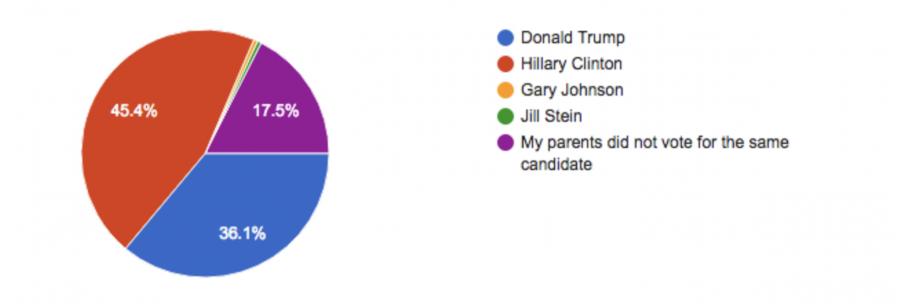Josh Berenbaum
Sports Editor
The 2016 Election was as highly emotional and divisive as any election in US history. At Milken, the political pot was stirring in the days before and after the election. In the days leading up to and following the presidential race, students heard about it both inside and outside the classroom. Out of 198 students polled, only three students say they never discussed the election in class, while 65 students (33%) felt that the election came up “often” in their classes.
Elliott Sina ‘17 said he heard about the election in some of his classes, but felt some of his teachers “were purposely avoiding a discussion of the election, both before and after.” To Sina, this was disappointing because “in class we have to actually listen to each other and be quiet while others talk.” This year’s presidential contest featured heated arguments at campaign rallies and fierce polarization. The Roar found that about 75% of students believed their political debates were not totally civil, but avoided a “heated argument.”
While the election was present in classes, most students polled felt the teachers avoided sharing their views. Only eight of 198 (4%) students felt teachers shared their views often, while 31 (16%) said teachers never did. While there is no law prohibiting teachers from supporting candidates, there is a widespread expectation that educators remain neutral. This expectation is meant to protect students from being influenced politically by people who hold significant influence.
Mr. Christopher McAdamis, an English teacher, said the election came up in his classes, and he felt that “[his] views were probably obvious every time the election came up.” He only brought up the election once, initiating a class-wide discussion in his 10th grade World Literature course following the vote.
While the Milken student body trended towards Clinton (who won 52% – 35% in this survey and 47% – 39% in a Student Government election day poll), most students felt comfortable sharing their views on campus. 52 students (26%) answered that they were extremely comfortable, compared to 15 (8%) students who were extremely uncomfortable. Most Milken students felt that they had some political knowledge, while 42 students (22%) believed they were very knowledgeable and engaged compared to only four (2%) who said that they were not knowledgeable whatsoever.
Milken student support closely matched that of their parents. Students answered that 46% of their parents voted for Clinton, while 36% voted for Trump. Another 17% of students came from homes who were split between candidates.
The Roar survey revealed that Milken is divided over the results of the 2016 election. The Milken community was abuzz with political discourse throughout the election season, and students learned both from their parents and in the classroom.



